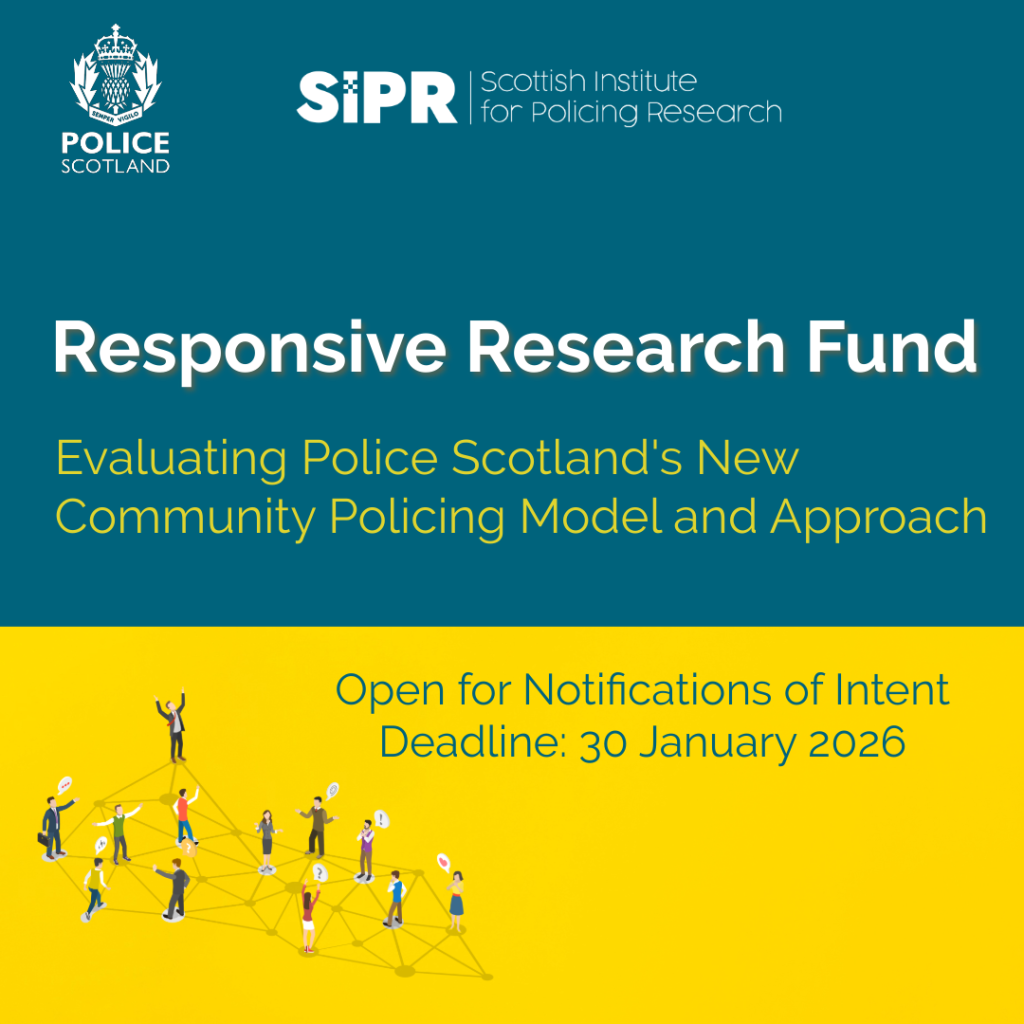A call for evidence to scope possible issues arising from emerging technological developments in policing
This call for evidence closes 20 August 2021
The Independent Advisory Group on Emerging Technologies in Policing is seeking written views to aid its work in scoping the possible issues arising from emerging technological developments in policing. You can send in your views by filling out the form at the bottom of this page and emailing it to etiag-contact@gov.scot.
The group is due to report to the Cabinet Secretary for Justice in Spring 2022 on whether the current legal or ethical frameworks need to be updated in order to ensure Police Scotland’s use of emerging technologies in relation to operational policing are compatible with human rights and other applicable legislation and best practice; and to provide specific recommendations or concrete products to address any identified issues.
The group is not focussing on any particular technology as part of its work, instead it is trying to ensure that appropriate frameworks are in place that allow for the consideration and introduction of new technologies. However, in order to contextualise this call for evidence it may be useful for respondents to consider that the commitment to set up this group was made by the former Cabinet Secretary for Justice at a session of the Justice Sub-Committee on Policing in 2019. In the last parliamentary session the Committee explored issues relating to the potential introduction of cyber kiosks, facial recognition, body-worn video and remote piloted aircraft systems.
The work of the group is being progressed via four work streams, who will each produce a separate report and recommendations which will all feed in to produce the final output of the group. The work streams are as follows:-* legal framework and ethical standards
* evidence and scientific standards
*consultation and community engagement
* oversight, scrutiny and review
Each of these separate work streams have devised questions for this call for evidence and are keen to receive responses which will be used to enhance their understanding and aid their considerations:
Legal and ethical
* what impacts on rights do individuals (including witnesses, victims, suspects and members of the public) experience as a result of the use of new and emerging technologies in policing and what promising practices exist, in the UK and internationally, to mitigate them?
* is the current legislative framework fit for purpose by providing sufficient safeguards for people when new technologies are introduced and is it adaptable enough to allow for the continued technological development of areas such as artificial intelligence? Please identify any gaps and suggested improvements
* what relevant processes should be undertaken to assess the above impacts and consider ethical implications of the use of emerging technologies in policing? If possible, please provide examples of promising practice from other fields or jurisdictions
Evidence and scientific standards
* what promising practices exist in terms of the role of research evidence, innovation and scientific standards in the process of the consideration, adoption and implementation of emerging technologies in policing?
* how might a cybersecurity framework be developed for Police Scotland which improves the handling and trustworthiness of digital data and evidence, and which also supports new areas of collaboration and innovation and engagement with the tech industry?
* how might data sharing practice be improved with community partners, citizens and local public services, in order to improve digital evidence handling and threat sharing, in order to improve trust?
* how can policing partners engage with the tech industry to understand the innovations we are likely to see in the future that may have policing applications and how could scientific standards and research evidence be used to support early adoption of novel technology by Police Scotland?
Consultation and community engagement
* what does a well-designed public dialogue and participation process look like for decision-makers and the public – where there is a complex environment for the introduction of new approaches, services or technology?
* what are the ways in which an inclusive public dialogue on emerging technologies in policing could progress towards informed recommendations from the public to decision-makers?
* how have other public bodies, in Scotland or elsewhere, involved the public in the design of future services in an inclusive way? Are there examples of how this led to better outcomes for services and communities?
Oversight and scrutiny
* what are the gaps in the current oversight and scrutiny arrangements (internal and external) for new and emerging technologies (particularly those driven by data) in policing (including in relation to private bodies)?
* what additional data is needed to facilitate effective oversight and scrutiny arrangements for new and emerging technologies in policing?
what promising practices in oversight and scrutiny exist internationally, particularly in terms of future-proofing regulation?
* Responses are requested by 20 August 2021 and should be accompanied by the Respondent Information Form at the bottom of this page in order to ensure that your response is handled appropriately.
You do not need to respond to all questions asked and can focus on those that are relevant to you and your organisation.
You should complete your response by email and return it to etiag-contact@gov.scot.
If you have any questions relating to this call for evidence, please email etiag-contact@gov.scot.



